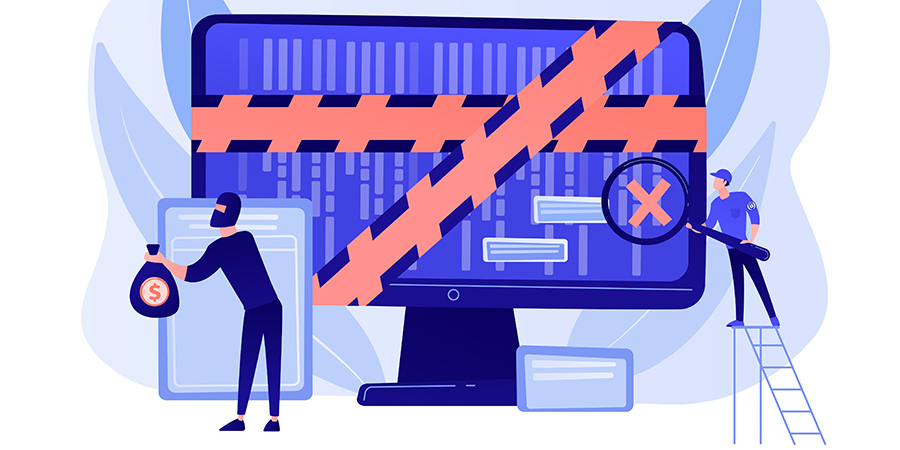Digital Retail Soars, So Does the E-Commerce Hacking

When the world went online at the beginning of 2020, e-commerce saw a dramatic increase in the volume of traffic and sales. Being able to sell online kept many businesses afloat during the pandemic and the prediction is that at least 20% of the current volume is here to stay forever.
However, there is another side of the medal for this e-commerce surge. The number of hacking attempts, DDoS attacks, and other cybercrimes directed at online retailers has also increased. In this post, we want to discuss the most common cyber attacks and the ways you can protect your e-commerce website from them.
What Are the Most Common Threats to Online Retail Cybersecurity?
There are many different types and kinds of cyber attacks. They can be directed at the website as a whole or at its individual users. The two main goals are either to gain access to users’ information or disrupt the work of the website.
There are multiple ways that hackers employ to get your customers’ personal sensitive data. Common types are phishing, malware, man-in-the-middle attacks, using insecure VPN connections, etc. Ultimately the criminal obtains user login information and as a result, they get access to debit and credit card numbers, account names, passwords, email or social media, etc., i.e. all the information about this particular user stored in your database. With this information, a criminal can commit financial fraud, send spam messages, or even blackmail users.
Data theft is relatively low-scale. The attacks on e-commerce websites and servers, on the other hand, are much more impressive. Thus, in February 2020, Amazon Web Services reported the largest DDoS (distributed denial-of-service) attack on its servers. A DDoS attack is an attempt to disrupt the work of the website and servers by overwhelming them with traffic. As a result, regular users cannot access the website, which means you are losing money and time.
How Can You Boost Your Online Business Cybersecurity?
There are a number of ways that can either prevent hacker attacks on your online retail business or will help you deal with them in a faster and more efficient way.
1. Educate your users and employees
Make sure your customers and employees know about the possible risks. With phishing, for instance, a criminal might create a sense of urgency and rely on people’s inattentiveness. Malware can be downloaded with pirated software or from unreliable websites. Awareness of possible threats is key to prevention.
2. Use reliable third-party software
You can store such data as your customer’s age, shopping history, gender, etc. in your databases because it is necessary for advertising and improving user experience. However, to give additional protection to your clients’ sensitive data, you can choose reliable third-party software to process payments.
3. Implement multilevel defense systems
The more levels of defense you have, the more efficiently you will repel cyber attacks. Make sure you have a firewall and anti-malware software, introduce a two-level authentication, have filters for spam and content, etc. These measures are not going to protect you against a DDoS attack, but will definitely help you deal with other cyber threats.
4. Have clear policies and protocols for DDoS
Start by identifying your control traffic, i.e. the amount of traffic your website gets daily. This way, your staff will notice a suspicious increase. The sooner this happens, the more successful your attempts to fight a DDoS attack will be.
Next, make sure there are clear policies and protocols that your staff knows well and can implement confidently. The well-coordinated work of your staff will help keep the damages from the attack to a minimum.
5. Know your vulnerabilities
If you don’t know your cybersecurity weak spots, you are not 100% ready to deal with cyber attacks. Having a specialized team to perform risk assessment is a luxury that not every online retail business can afford. Get cybersecurity risk assessment services from MBS Techservices and you can rest assured that in the end:
- Your website’s vulnerabilities are identified and taken care of;
- All the sensitive data is protected;
- You have a clearcut plan of action for security incidents and breaches.
Besides security gap analysis, MBS Techservices specialists will educate your team about the steps that need to be made in order to protect your business.

Categories
For your convenience, we’ve divided our blog on cyber security into several categories so that you can find necessary articles fast and effortlessly. Just choose the category that evokes your interest and enjoy reading.